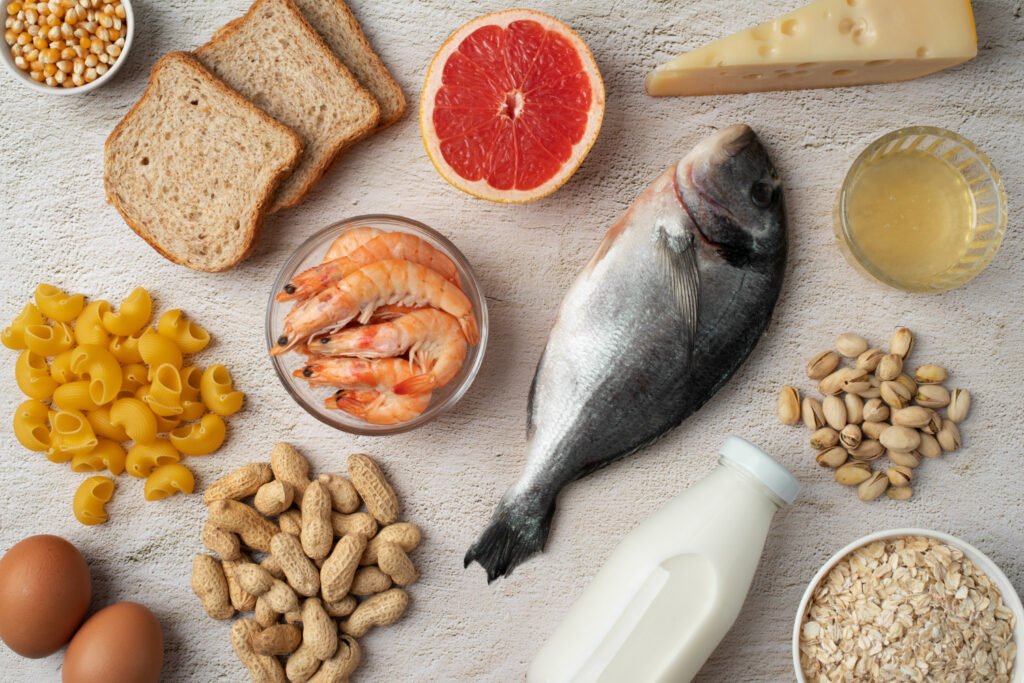
In this article
Hook: Why High-Protein, Low-Sodium Snacks Matter
Ever found yourself reaching for a snack, only to be bombarded with choices that seem less than healthy? Finding snacks that are both high in protein and low in sodium can be a game-changer for your health. Not only do these snacks fuel your muscles and support your body’s functions, but they also help manage blood pressure and reduce the risk of chronic diseases.
Understanding Protein and Sodium: The Essentials
Protein: This nutrient is crucial for muscle maintenance, immune system regulation, hormone production, and more. Active individuals are often advised to consume between 1.2-2 grams of protein per kilogram of body weight daily.
Sodium: While sodium is essential for controlling blood pressure and ensuring proper muscle and nerve function, excessive intake can lead to health issues such as hypertension and kidney disease. The daily recommended value for sodium is 2,300 milligrams, but those with certain health conditions are often advised to limit their intake to 1,500 milligrams or less.
Balancing these two nutrients can be tricky, especially since many high-protein snacks are loaded with sodium. However, there are plenty of delicious and nutritious options that meet these criteria.
Top High-Protein, Low-Sodium Snacks
1. Salt-Free Cottage Cheese
Protein: 28 grams
Sodium: 29.4 milligrams (1.27% of the Daily Value)
Cottage cheese is a powerhouse of protein and essential nutrients like vitamin B12, calcium, zinc, and selenium. While regular cottage cheese contains 696 mg of sodium per cup, the salt-free version offers just 29.4 mg. Pair it with sliced fruit and a sprinkle of cinnamon for a delightful, satisfying snack.
2. Greek Yogurt
Protein: 19.9 grams
Sodium: 68 milligrams (3% of the Daily Value)
Greek yogurt is an excellent option for those looking to increase their protein intake. A 7-ounce serving provides nearly 20 grams of protein and just 69 mg of sodium. For an added protein boost, mix in nuts and seeds.
3. Hard-Boiled Eggs
Protein: 12.6 grams
Sodium: 124 milligrams (2.69% of the Daily Value)
Hard-boiled eggs are nutritious and convenient, offering 12.6 grams of protein per two large eggs and a modest 62 mg of sodium per egg. Enjoy them with fresh fruit or vegetables for a balanced snack.
4. Canned Salmon Without Salt
Protein: 17.4 grams
Sodium: 63.8 milligrams (2.77% of the Daily Value)
Canned salmon is a great shelf-stable source of protein. A 3-ounce serving of salt-free canned salmon provides 17.4 grams of protein and just 63.8 mg of sodium. Pair it with whole grain crackers or a salad for a quick, healthy snack.
5. Whey Protein Shake
Protein: 15 grams
Sodium: 106.6 milligrams (1.09% of the Daily Value)
Whey protein is a versatile option for those needing a protein boost. Most protein powders are low in sodium, making them suitable for sodium-restricted diets. A 34-gram serving offers 15 grams of high-quality protein and just 25.2 mg of sodium. Blend it into a shake with ingredients like bananas, yogurt, and berries for a nutritious treat.
6. Unsalted Pumpkin Seeds
Protein: 8.46 grams
Sodium: 5.1 milligrams (0.22% of the Daily Value)
Unsalted pumpkin seeds are a fantastic plant-based protein source, with one ounce containing 8.46 grams of protein and just 5 mg of sodium. They are also rich in magnesium, essential for blood pressure regulation. Enjoy them on their own or in a trail mix.
7. Chicken Salad
Protein: 26 grams
Sodium: 75 milligrams (3.26% of the Daily Value)
Chicken salad can be a high-protein, low-sodium snack when made with low-sodium ingredients. A 4-ounce chicken breast provides 26 grams of protein and 75 mg of sodium. Mix shredded chicken with Greek yogurt, low-sodium mustard, and chopped vegetables for a delicious, filling snack.
8. Kefir Smoothie
Protein: 9.21 grams
Sodium: 97.2 milligrams (4.22% of the Daily Value)
Kefir is a fermented drink rich in protein and low in sodium. One cup of plain kefir offers 9.21 grams of protein and under 100 mg of sodium. It’s also packed with probiotics, which can aid digestive health. Blend it into a smoothie or enjoy it plain.
9. Unsalted Peanuts and Raisins
Protein: 7.94 grams
Sodium: 1.7 milligrams (0.07% of the Daily Value)
Peanuts are high in protein, with unsalted peanuts providing 7.94 grams per ounce and just 1.7 mg of sodium. Pair them with raisins for a balanced, sweet-and-savory snack rich in essential nutrients.
10. Shrimp Cocktail
Protein: 20.4 grams
Sodium: 94.4 milligrams (4.1% of the Daily Value)
A shrimp cocktail is a flavorful, low-sodium appetizer. A 3-ounce serving of shrimp offers 20.4 grams of protein and under 100 mg of sodium. For a healthier version, make your cocktail sauce with no-salt-added tomato paste and other low-sodium ingredients.
11. Peanut Butter Apple Rounds
Protein: 9 grams
Sodium: 0 milligrams
Peanut butter is a versatile high-protein snack, especially when unsalted. Spread 2 tablespoons of unsalted peanut butter on apple slices for a nutritious and satisfying snack that provides 9 grams of protein with no added sodium.
High-Protein, Low-Sodium Foods
Meat and Poultry
Protein: 22-27 grams per 3-ounce serving
Sodium: Low
Choose unprocessed meats like chicken, turkey, beef, and pork, which are naturally low in sodium. Avoid processed meats like bacon and hot dogs, which can contain up to 600 mg of sodium per serving.
Seafood
Protein: 19 grams per 3-ounce serving
Sodium: 70 milligrams
Fish and shellfish are excellent sources of protein and often low in sodium. Opt for fresh or frozen varieties, as processed seafood can be high in sodium.
Soy Products
Protein: 10 grams per quarter cup (roasted soybeans), 22 grams per half-cup (tofu)
Sodium: Low
Soybeans and tofu are nearly sodium-free and rich in protein, making them great options for plant-based diets. Soy milk and soy yogurt are also good choices.
Healthy Low-Sodium Foods and Snacks
Vegetables
Raw or minimally processed vegetables are low in sodium and high in vitamins and minerals. Enjoy a variety of veggies with low-sodium dips for a nutritious snack.
Fruits
Most fruits are naturally low in sodium and high in essential nutrients like vitamin C and potassium. Fresh, frozen, or canned fruits (in their juice) make excellent low-sodium snacks.
Whole Grains
Whole grains like multigrain bread, whole-wheat crackers, and low-sugar cereals are low in sodium and rich in fiber. Pair them with low-sodium spreads for a satisfying snack.
The Takeaway
Maintaining a diet rich in high-protein, low-sodium snacks can significantly impact your health by supporting muscle function, immune regulation, and blood pressure control. With the variety of delicious options available, from salt-free cottage cheese to shrimp cocktail, it’s easy to make healthier snack choices that benefit your body and taste buds. Start incorporating these snacks into your daily routine to enjoy the benefits of balanced nutrition and improved health.
Reflect on your current snack choices and consider swapping out high-sodium, low-protein options for the nutritious alternatives listed above. Your body will thank you
A Quick Review
Finding high-protein, low-sodium snacks can be challenging but rewarding. This article explores a variety of tasty and nutritious options, such as salt-free cottage cheese, Greek yogurt, and hard-boiled eggs, that help maintain muscle function, support the immune system, and manage blood pressure. Discover how to incorporate these healthy snacks into your diet for optimal well-being
Frequently asked questionsay
Why is it important to find snacks that are high in protein and low in sodium?
High-protein, low-sodium snacks help maintain muscle function, support the immune system, and manage blood pressure, reducing the risk of chronic diseases.
What are some examples of high-protein, low-sodium snacks?
Examples include salt-free cottage cheese, Greek yogurt, hard-boiled eggs, canned salmon without salt, and unsalted pumpkin seeds.
How much protein should an active individual consume daily?
active individual consume daily? A: Active individuals are generally advised to consume between 1.2-2 grams of protein per kilogram of body weight each day.
What is the recommended daily sodium intake?
The recommended daily sodium intake is 2,300 milligrams, but those with certain health conditions should limit their intake to 1,500 milligrams or less.
Can you provide a simple high-protein, low-sodium snack recipe?
Try mixing shredded chicken with Greek yogurt, low-sodium mustard, and chopped vegetables to make a delicious chicken salad.











